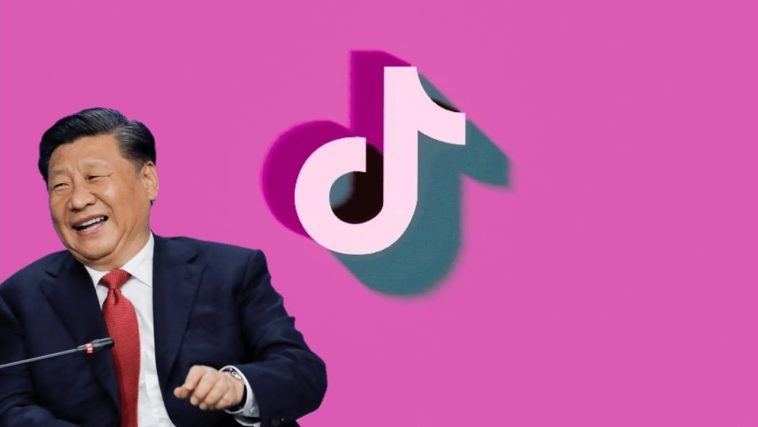LISTEN HERE:
A recent lawsuit has stated that ByteDance, owner of TikTok, granted access to Chinese Communist Party members to censor content and acquire data. This unit, known as the “Committee,” even had a “death switch” to turn off certain programs. According to the lawsuit, ByteDance created a “backdoor channel” to allow CCP access to user data hosted in the US. The lawsuit, which was filed on Friday in San Francisco, claims that the company granted special powers to CCP members inside the company’s “Committee,” allowing them to oversee its business activities, deem content that was unfavorable to China’s interests as a demotion, and shut down Chinese versions of its applications using a death switch.
Even after ByteDance blocked access to individual engineers in China, the lawsuit alleges that the “Committee” still had access to US user data. Specifically, it states that “high level persons” could access user data through a backdoor channel, despite the location of the data being irrelevant, as Chinese law mandates that companies grant access to user data to the government. The lawsuit claims that ByteDance was concerned that if the Chinese government’s backdoor were removed from the international/U.S. version of the app, the Chinese government would ban the company’s valuable Chinese-version apps.
Yu Yintao, who filed the complaint, claims that he saw the backdoor channel in the company’s code, which allowed for this access. Yu, who was wrongfully terminated according to the suit, says that ByteDance created a culture of lawlessness within the company. According to Yu, ByteDance focused on growth at a financial cost. The lawsuit adds that the internal CCP group helped the company preserve “core communist values,” sometimes blocking content related to events such as the Hong Kong pro-democracy protests.
ByteDance has consistently denied sharing information with the Chinese government and has reassured the public that US user data is stored in the US and Singapore. Furthermore, ByteDance has claimed that its content moderation is led by a US-based team that operates independently from China. This has not stopped the US from closely examining the company’s activities. In Montana, for example, legislation was passed in April allowing for the banning of TikTok within state borders.
In an effort to protect US user data, TikTok has invested $1.5 billion in a data sovereignty initiative named Project Texas in partnership with Oracle. ByteDance responded to the allegations stating that Yu’s employment was terminated in July 2018. ByteDance also noted that they planned to dispute the allegations.
The lawsuit has put ByteDance under additional scrutiny, with the company receiving a growing amount of backlash from politicians in US. There are concerns that TikTok’s owner may be forced to allow the Chinese government access to US user data through its National Intelligence Law. Members of Congress from both parties have proposed bills that would give the White House the power to ban TikTok and other apps with Chinese ties.
The US has long been wary of China’s influence on its technology sector, with tensions between the two countries heightened. The lawsuit not only raises issues regarding access to user data, but also how much control the Chinese government has over the content that users consume. Although TikTok has vehemently denied granting the Chinese government access to US user data, the company has struggled to convince critics that they are operating independently from China.
ByteDance and TikTok’s critics have differing accusations against the company. While the US alleges that TikTok is a threat to national security, ByteDance claims that criticism has been unfounded. The company cites various safety and security measures that it has put in place, including conducting regular safety checks and its content moderation team’s ability to remove objectionable content.
Nonetheless, as long as US-China tensions remain high, ByteDance and TikTok will continue to fall under scrutiny. The situation only grew more complicated when President Trump announced an executive order on August 6th that would give ByteDance 45 days to sell its US TikTok operations to an American company. ByteDance has responded by suing the US government over the export ban.


